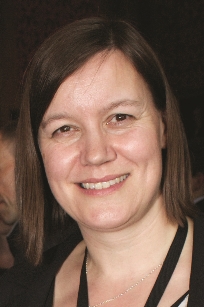News / PAC calls for CHC efficiency clarification
NHS England has been set an April deadline by the Public Accounts Committee to provide details of how efficiency savings will be made on the continuing healthcare (CHC) budget.
Clinical commissioning groups (CCGs) have been set a target for efficiency savings of £855m by 2020/21. While spending on CHC will continue to grow year-on-year, the savings are compared to predicted growth in spending on CHC and NHS-funded nursing care.
However a report from the Public Accounts Committee – NHS continuing healthcare funding – concluded it was not clear how CCGs could make these savings without restricting access to care, either by increasing eligibility thresholds or by limiting the care packages available.
The committee called for a ‘costed breakdown of how these efficiency savings will be achieved’ and for assurance that they would not mean restricting access to care for vulnerable patients.
PAC chair Meg Hillier said the CHC system was ‘falling short on so many fronts’. ‘Oversight of CHC funding has been poor and NHS England’s demand that clinical commissioning groups make big efficiency savings will only add to the financial pressures on the frontline,’ she said.
In evidence to the committee’s inquiry – which itself is a response to the National Audit Office’s report on the same subject last summer – the Department of Health said that the required efficiencies were proportionally the same as the efficiencies facing the NHS as a whole. Savings would be realised by tackling variation, adopting best practice, speeding up assessment work, reducing administrative costs and using better case management, the Department said.
However the PAC questioned how much contribution the assessment process could make to the efficiency target given CCGs spent just £149m on this activity in 2015/16.
While the Department and NHS England insist there is no quota or cap on access, the PAC pointed at figures showing a reduction in the proportion of people assessed as eligible for standard CHC in recent years – although fast-track assessments have increased.
And it raised concerns about ‘arbitrary financial caps’ being placed on the cost of care packages that may be forcing people to accept lower cost packages that do not meet all their care needs. The report revealed that the Equality and Human Rights Commission had recently written to 44 CCGs because it has concerns they have policies that restrict funding which may result in disabled people facing institutional care against their wishes.
The committee also said accessing CHC funding depended too much on local interpretation of assessment criteria set by the Department, leading to significant variation across the country. In 2015/16, the number of people assessed as eligible for CHC ranged from 28 to 356 people per 50,000 population. The PAC called for the Department and NHS England to improve the quality of assessment tools for staff carrying out assessments and to monitor the impact on reducing variation between CCGs.
See A sharper focus – Healthcare Finance October 2017
Related content
We are excited to bring you a fun packed Eastern Branch Conference in 2025 over three days.
This event is for those that will benefit from an overview of costing in the NHS or those new to costing and will cover why we cost and the processes.